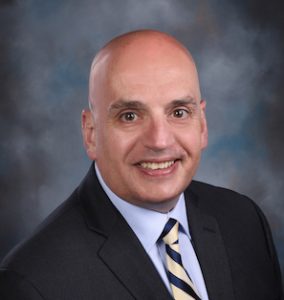Congress disregards physician community
In surprising fashion, the U.S. House, followed by the U.S. Senate, passed HR 4302, the Protecting Access to Medicare Act of 2014. The bill has now been signed by into law President Barack Obama. It prevented a 24 percent decrease in Medicare physician reimbursement that was scheduled to kick in on April 1,2014. The law averted the 24 percent cut in exchange for 0.5 percent continued increased payments over 2013 levels through the rest of 2014, but then includes a 0 percent update for the first three months of 2015. While preventing the 24 percent cut was the underlying premise for the law, what else is included and how it will get paid for is definitely more important to physicians in the long run.
The bill that was brought to the House floor came directly from a compromise worked out by House Speaker John Boehner and Senate Majority Leader Harry Reid. The 121-page bill was introduced on the evening of Wednesday, March 26, with a vote scheduled for the very next morning! Many members of congress were unaware that there was a vote scheduled, or what was in the bill, before it hit the House floor. The bill was taken up under a special provision whereby “noncontroversial” bills can be considered and voted on under “suspension of the rules” (e.g., debate limited to 40 minutes and no amendments allowed by members on the floor). But this bill certainly was controversial, as the debate showed. Despite significant “voice” (e.g., voice vote: only the members currently on the floor may vote) objection during a hastily called vote when many members of the House weren’t even in the chamber, the bill was considered “passed” by the House. Despite strong objection from the American Medical Association, ACEP, and the entire organized specialty houses of medicine, the Senate passed the bill and it has now been signed into law.
In addition to preventing the 24 percent Medicare cut, the law contains a number of other significant provisions including another one-year delay in the implementation of ICD-10 coding, a six-month delay in the implementation of the “2-Midnight Rule” for Medicare patients, and 50 other changes to health care payment or regulations under the Medicare program.
So what does the bill do financially for physicians? Well, the cost of the law in delaying the permanent Sustainable Growth Rate-formula fix for yet another year is $20 billion. Where will that money come from? About half will actually come directly out of physicians pockets, as the law contains a provision that will allow the Secretary of Health and Human Services to modify Medicare payments to physicians for “over-valued” services and also extends sequester cuts for another year at the end of the current 10-year program. The law also contained some “sweeteners” for hospitals in delaying the implementation cuts to the Disproportionate Share Hospital Payments made by CMS to hospitals to partially offset the amount of free care provided, and it also delays the implementation of additional Medicare Recovery Audits, referred to as RAC audits.
The end result of the passage of HR 4302 is that another opportunity for Congress to “do the right thing” and permanently repeal the flawed SGR formula has been lost. Rather than take advantage of significant work done by a number of Congressional committees to come up with a replacement program, the leaders of the U.S. House and Senate chose to yet again “kick the can down the road” and avoid making the difficult decisions that must be made to fix this problem once and for all.
 Dr. Cirillo is director of health policy and legislative advocacy for Emergency Medicine Physicians in Canton, Ohio.
Dr. Cirillo is director of health policy and legislative advocacy for Emergency Medicine Physicians in Canton, Ohio.
Pages: 1 2 | Multi-Page





No Responses to “SGR Patched Yet Again”